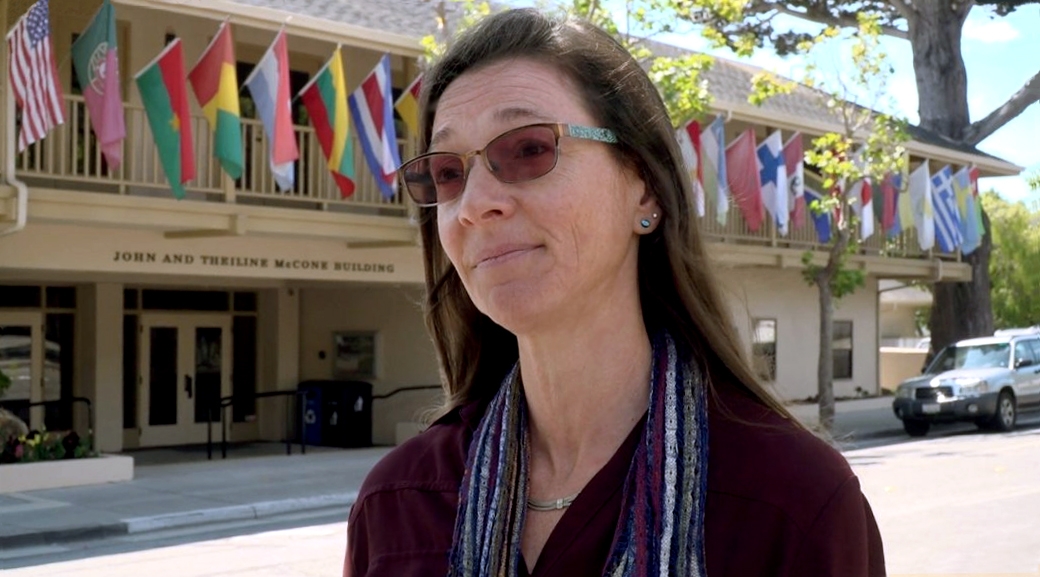What The Interpreter's Code Of Ethics Says About Conversations In Private Meetings
NPR (All Things Considered), Barry Slaughter Olsen

The recent summit between U.S. President Donald Trump and Russian President Vladimir Putin in Helsinki, Finland turned the media spotlight on the critical role played by their interpreters.
As the two world leaders met one-on-one for over two hours with only their official interpreters present in the room, some members of Congress have demanded that “the only other American in the room” testify publicly about the content of those discussions. There have also been calls for the interpreter to hand over her notes from the meeting.
While the legal implications of asking official interpreters to share information about confidential high-level meetings are unclear, Institute faculty including experienced diplomatic interpreters Barry Slaughter Olsen and Laura Burian, both also graduates of the Institute, were both approached by the national media for their comments on ethical considerations for their profession.
Whoever the statesmen or whoever the interlocutors may be, they have to have trust that that interpreter is not going to share the information that comes from a confidential encounter whether it is at the level of heads of state or it is in a medical clinic.
In an interview that aired on NPR´s All Things Considered on July 20th, Olsen likened the strict ethics of professional interpreters with “the kind of privileged communication that goes on between a doctor and patient,” or an attorney and their client. The same evening, on PBS NewsHour Olsen said that breaking the “rock-solid tenet” of interpreter secrecy “could significantly undermine the faith that people have in our profession.”
Here in Monterey, we recently asked newly appointed Graduate School of Translation, Interpretation, and Language Education Dean Laura Burian—an experienced diplomatic interpreter who has interpreted for high level officials including First Lady Michelle Obama—to share her thoughts on this issue with us.
The 2018 summit between President Trump and Russian President Putin put the official diplomatic interpreter in an unusual spotlight. We asked Laura Burian, an experienced diplomatic interpreter, longtime member of our translation and interpretation faculty, and alumna of our program, to explain the role of the interpreter in situations like this.
Translation vs. Interpretation?
A good question, since we’ve been hearing a lot of news reports that seem to confuse them. Translation is when you take something from one language to another in the written word and interpretation is spoken.
What can the interpreter tell us?
You are bound by a canon of ethics for interpreters in general and then more specifically when you’re a diplomatic interpreter there’s a lot of laws, in fact, that will prevent you from speaking out about whatever transpired in the room. It’s typically if you are, for instance, for the US Department of State, if you’re a diplomatic interpreter, that means that you have a Top Secret security clearance, and you treat every interaction that you interpret for as Top Secret.
Any exceptions?
If something has been made public record, I suppose you could confirm, yes, that is what the public record says, but it’s not your story to tell.
What about contradicting public record?
I’ve never seen it happen. I know the reason we’re talking about this is because of recent calls for the interpreter for Trump and the meeting with Putin to come out to Congress and speak. I don’t know if she can be compelled to do so. It will take some legal investigation to figure out even if that’s possible. And I think that’s why there’s a bit of a delay and they’re trying to figure out even if they can ask for that.
How accurate are interpreter notes?
Interpreters take notes that are very much a shorthand that is to be used in the moment. Often the utterances are well under a minute in these kinds of back and forth discussions, and so you may or may not take any notes at all in the moment. If you do take notes at all for a longer utterance, you write down just what you need to remember it briefly. And so you can’t necessarily go back to your notes or even to your memory and recall, with great accuracy, everything that was said in the past. It’s in the moment that your notes are highly accurate.
Have you ever been asked?
Yes. And the instructions that I’ve followed, you know, if you’re working for the Ambassador and you are in the room and the Ambassador’s assistant is not in the room. And then you come out of the room and the Ambassador’s assistant says, can you tell me what happened? The answer is always no. There may be a reason why that person was not in the room. You don’t know all of the ins and outs of it. It’s not your judgement call to make, so it’s just always, I can’t remember, if they really press you.
Jason Warburg
jwarburg@middlebury.edu
831-647-3516
Eva Gudbergsdottir
evag@middlebury.edu
831-647-6606
NPR (All Things Considered), Barry Slaughter Olsen
PBS Newshour, Barry Slaughter Olsen
| by Eva Gudbergsdottir
Professor Laura Burian has been selected Dean of the Middlebury Institute’s Graduate School of Translation, Interpretation, and Language Education.